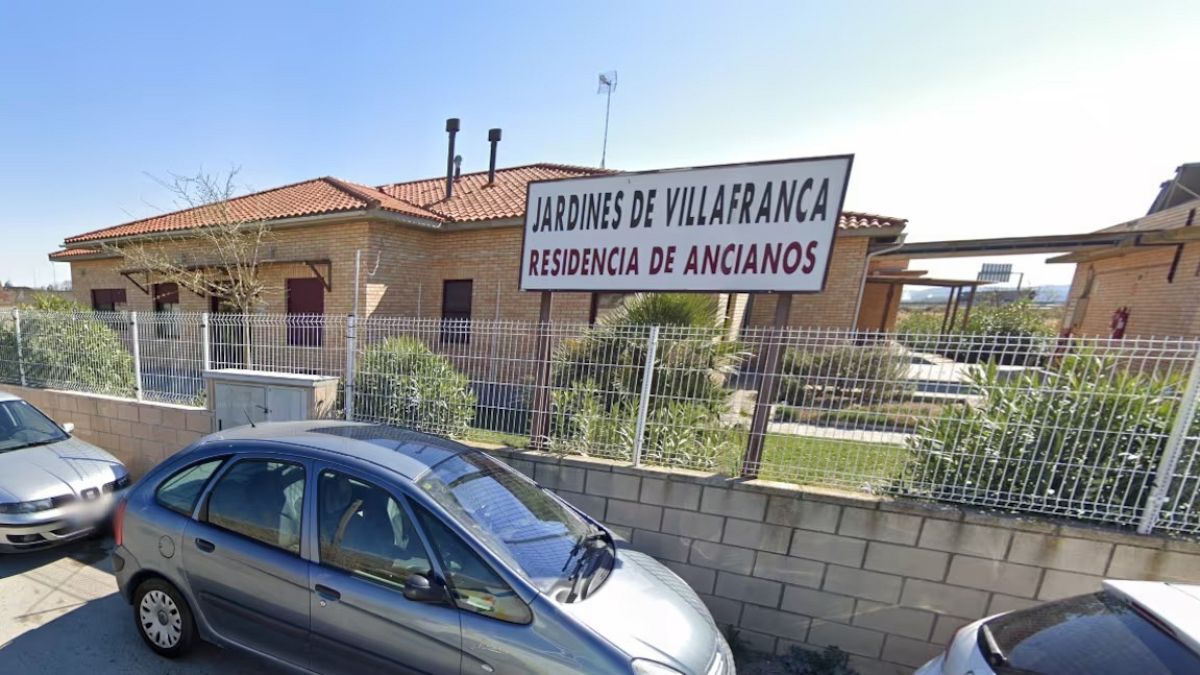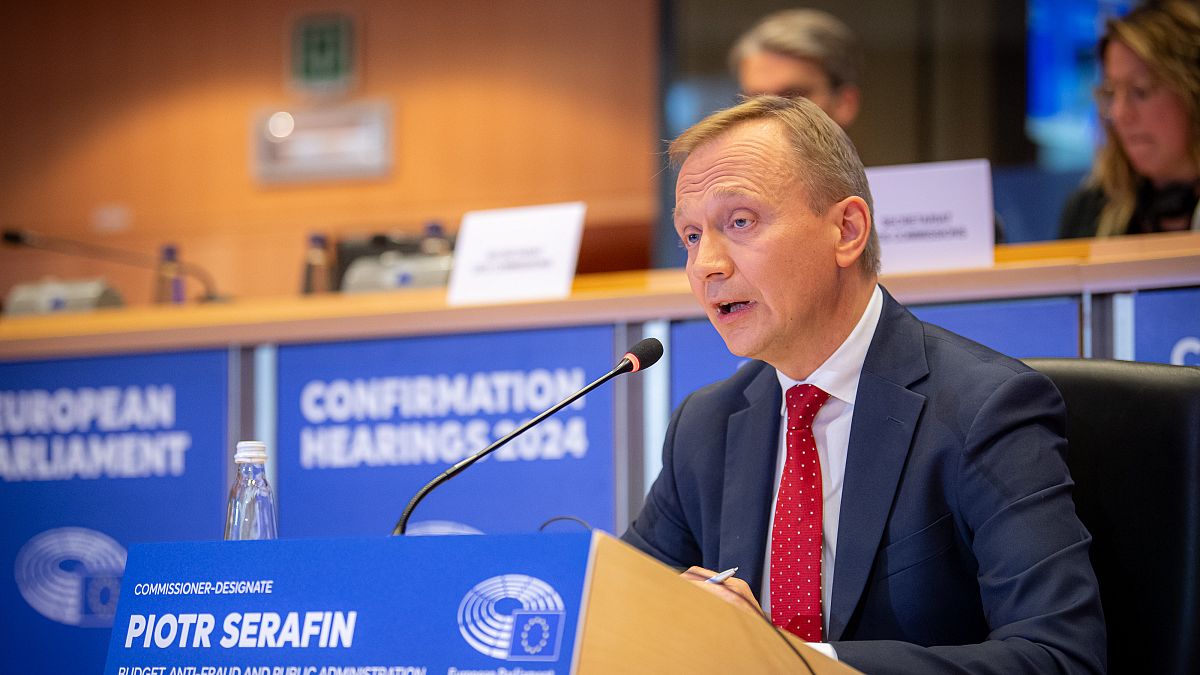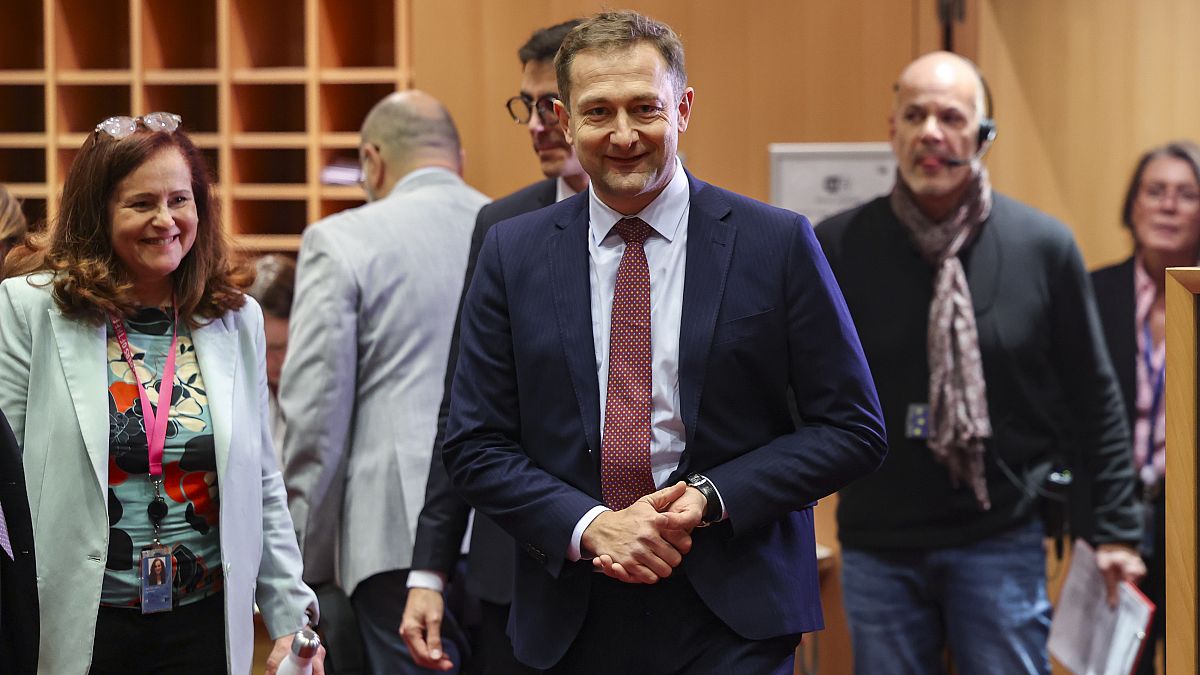World
Brussels has ‘zero’ concerns on amnesty law, says Spanish minister
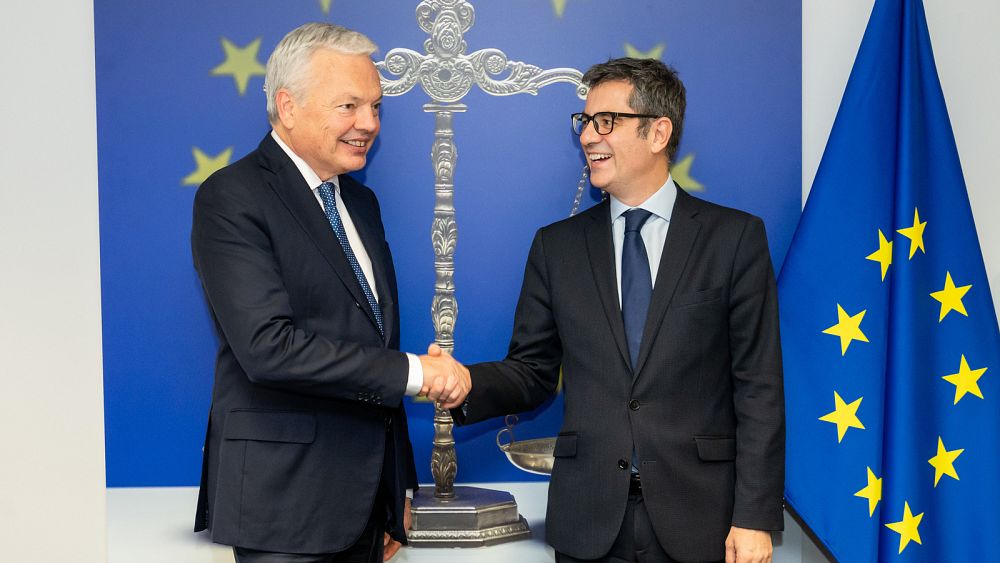
The European Commission has no concerns about the impact of Spain’s controversial amnesty bill on the rule of law, Spanish justice minister Félix Bolaños said on Thursday.
Speaking to reporters in Brussels following a meeting with EU justice commissioner Didier Reynders and transparency commissioner Věra Jourová, Bolaños said: “On the amnesty law, I have to tell you that the European Commission has zero concerns about the health and strength of the rule of law and the separation of powers in Spain – zero concerns, zero, none.”
“They (the Commission) are familiar with the law that has been presented, they know that it is a bill that absolutely conforms with the constitution, with Spanish law, also with EU law. And not only with EU law but also with European values of dialogue, of mutual understanding and of building coexistence from conflict,” Bolaños added.
Earlier this month, Catalan separatist party Junts per Catalunya (JxCat) – led by the self-exiled Carles Puigdemont – offered seven of its votes in the Spanish parliament to back a government led by socialist Pedro Sánchez in exchange for a controversial amnesty for Catalan politicians and activists who participated in a failed attempt at secession from Spain in 2017.
The move has infuriated Spain’s opposition parties, who accuse Sánchez and the Spanish socialist party (PSOE) of flouting the rule of law for political gains. The political right had called on the EU executive to intervene by probing potential rule of law infringements.
The bloc can sanction member states for rule of law breaches under Article 7 of the EU treaties and is currently withholding funds from both Hungary and Poland for democratic backsliding.
Following Thursday’s meeting with Bolaños, justice commissioner Didier Reynders said they had held a “good meeting” and that “dialogue will continue with the Spanish authorities.”
Reynders said last week that his legal team is scrutinising the bill “carefully, independently, and objectively to determine compliance with EU law,” but the Commission has so far refrained from disclosing its assessment of the proposed law, and no concerns regarding the erosion of the rule of law have been raised.
Bolaños – branded ‘super-minister’ after being given responsibility for the Presidency, justice and relations with the parliament in Pedro Sánchez’s newly-formed government – said that the Commission considered the amnesty bill to be an “internal matter for Spain.”
He also claimed the amnesty would help overcome a problem that had plagued Catalonia, Spain and Europe over the past decade.
“Our clear objective is to overcome a conflict that we had in Catalonia, and that of course affected not only Spain, but also the rest of Europe,” he said.
Last Wednesday, right-wing lawmakers in the European Parliament took aim at the amnesty bill in a heated debate, accusing Sánchez of flouting the rule of law for his own political gains.
But few lawmakers from other member states turned up to the debate, in a sign of what Bolaños claimed to be the bloc’s acceptance of the law.
“Therefore, given that this is the situation in Brussels, I would be grateful if the Partido Popular would not aim to harm our country’s reputation to fulfill their political goals,” he said, referring to Spain’s main opposition, centre-right party.
He also claimed that the largest part of the meeting with Commissioner Reynders was dedicated to the sore issue of the renewal of Spain’s top legal body, the General Council of the Judiciary (GCJ).
A political standoff between the government and the opposition over judicial appointments means the appointment of new members to the GCJ is blocked. Bolaños accused the PP of blocking the renewal
“Next Monday it will be five years since the PP has been blocking the renewal,” Bolaños said.
“The European Commission knows exactly who is responsible for us not being able to renew the General Council of the Judiciary,” he said.

World
TVLine Items: My Life With the Walter Boys Adds 5, Carrie Underwood Concert Special and More

ad
World
Putin signs revised doctrine lowering threshold for nuclear response if Russia is attacked

Russian President Vladimir Putin signed a revised nuclear doctrine on Tuesday stating that any attack on Russia supported by a country with nuclear power could be grounds for a nuclear response.
Putin signed the new policy on the 1,000th day of the war with Ukraine and the day after President Biden authorized Ukraine to use U.S.-supplied longer-range missiles to strike inside Russia.
The doctrine also states that Russia could respond to aggression against its ally Belarus with nuclear weapons, The Associated Press reported.
Though the doctrine doesn’t specify that Russia will definitely respond to such attacks with nuclear weapons, it does mention the “uncertainty of scale, time and place of possible use of nuclear deterrent” as key principles of deterrence.
BIDEN AUTHORIZES UKRAINE TO USE US LONG-RANGE MISSILES TO STRIKE INSIDE RUSSIA
Russian President Vladimir Putin signed a revised doctrine stating that an attack on Russia supported by a country with nuclear power could potentially trigger a nuclear response during a Nov. 18 meeting at the Kremlin in Moscow. (Vyacheslav Prokofyev, Sputnik, Kremlin Pool Photo via AP)
When asked if the updated doctrine comes in response to Biden’s decision to ease restrictions on how Ukraine can strike Russia, Kremlin spokesperson Dmitry Peskov told the AP that the doctrine was published “in a timely manner.”
Peskov also said Putin told the government to update it earlier this year so that it’s “in line with the current situation” – the Russian president led a meeting in September to discuss these proposed revisions to the doctrine.

The Kremlin said the revision was published “in a timely manner” when asked if it was done in response to President Biden authorizing Ukraine to use U.S. long-range missiles in Russia. (REUTERS/Kevin Lamarque )
TRUMP ALLIES WARN BIDEN RISKING ‘WORLD WAR III’ BY AUTHORIZING LONG-RANGE MISSILES FOR UKRAINE
Revealed in September, the doctrine now officially states that an attack on Russia by a nonnuclear power with the “participation or support of a nuclear power” will be seen as a “joint attack on the Russian Federation.”

A Yars intercontinental ballistic missile is test-fired from the Plesetsk launchpad in northwestern Russia in October 2024. (Russian Defense Ministry Press Service via AP)
It also contains a broader range of conditions that would trigger the use of nuclear weapons, noting that they could be used in response to an air attack involving ballistic and cruise missiles, aircraft, drones and other flying vehicles.
The previous document threatened the use of Russia’s arsenal if “reliable information is received about the launch of ballistic missiles targeting the territory of Russia or its allies.”
The Associated Press contributed to this report.
World
Damage to underwater cables was 'sabotage', German minister says
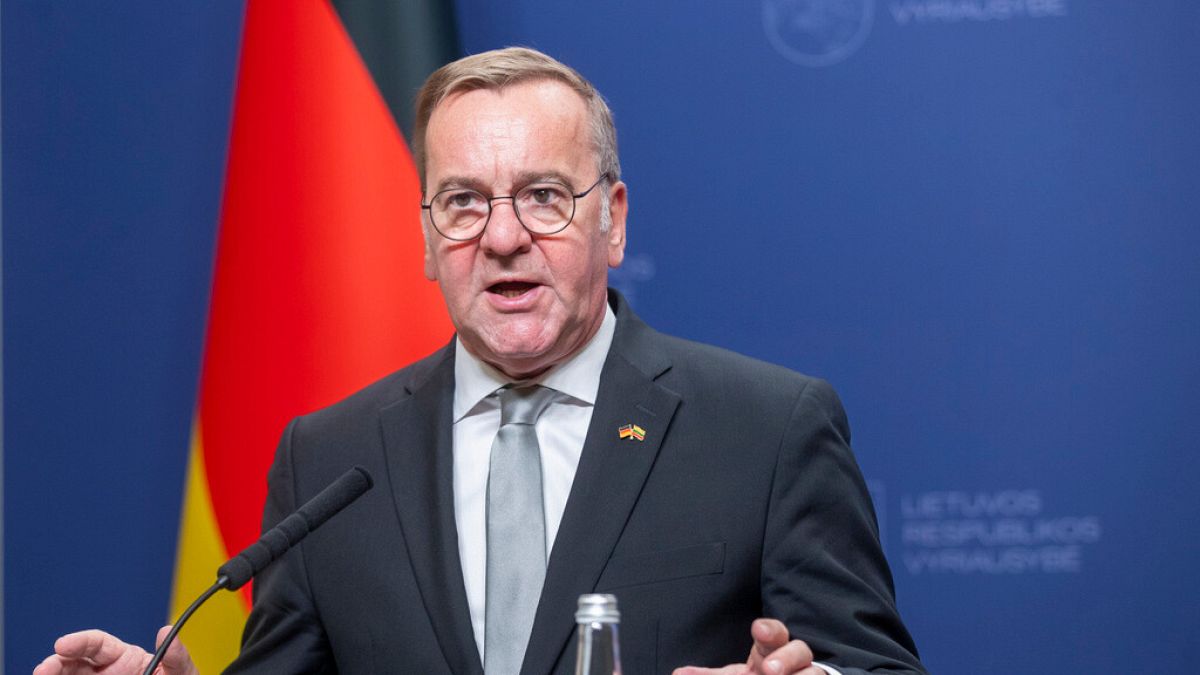
Two underwater fibre-optic communications cables running between Finland and Germany were discovered cut on Monday, an incident both countries said was under investigation.
German Defence Minister Boris Pistorius has said that damage done to two underwater data transmission cables running between Germany and Finland was deliberate.
“No one believes that these cables were accidentally cut,” Pistorius said in remarks made on the sidelines of a meeting of EU defence ministers in Brussels.
“We also have to assume, without knowing it yet, that it is sabotage,” he declared, adding that neither Germany nor Finland yet knows who was responsible for damage.
Germany and Finland announced on Monday that they had discovered a severed fibre-optic undersea data cable between the two countries, and that an investigation into the incident is underway.
In a joint statement, they said they did not know who was responsible for the damage, but that the incident came at a time when “our European security is not only under threat from Russia‘s war of aggression against Ukraine, but also from hybrid warfare by malicious actors”.
Pistorius also pointed to so-called “hybrid actors” as being potentially responsible for the damage.
“We have to state, without knowing specifically who it came from, that it is a ‘hybrid’ action” Pistorius said — implying that Russia, often considered responsible for acts of “hybrid warfare”, could be at least in part to blame for the incident.
Both Germany and Finland said that it was important that “critical infrastructure” such as data cables can be safeguarded.
“The fact that such an incident immediately raises suspicions of intentional damage speaks volumes about the volatility of our times,” the two countries said in their joint statement.
Finnish state-controlled data services provider Cinia said the damage to the data cable, which runs almost 1,2000 kilometres from the Finnish capital Helsinki to the German port of Rostock, was detected on Monday.
The incident is not the first to involve damage to underwater infrastructure in the Baltic Sea. On Sunday morning, a 218-kilometre internet link running between Lithuania and Swedish island of Gotland also lost service, according to a Swedish telecommunications company.
In 2022, Nord Stream gas pipelines under the Baltic Sea exploded, leading to several conspiracy theories around who could be responsible for the attack. Unconfirmed rumours have variously said that the US, Ukraine and Russia could have all played a role.
-

 Business1 week ago
Business1 week agoRef needs glasses? Not anymore. Lasik company offers free procedures for referees
-

 News1 week ago
News1 week agoHerbert Smith Freehills to merge with US-based law firm Kramer Levin
-
/cdn.vox-cdn.com/uploads/chorus_asset/file/25724877/Super_Nintendo_World.png)
/cdn.vox-cdn.com/uploads/chorus_asset/file/25724877/Super_Nintendo_World.png) Technology1 week ago
Technology1 week agoThe next Nintendo Direct is all about Super Nintendo World’s Donkey Kong Country
-
Business6 days ago
Column: OpenAI just scored a huge victory in a copyright case … or did it?
-

 Health6 days ago
Health6 days agoBird flu leaves teen in critical condition after country's first reported case
-

 Business2 days ago
Business2 days agoColumn: Molly White's message for journalists going freelance — be ready for the pitfalls
-

 Technology1 week ago
Technology1 week agoHow a researcher hacked ChatGPT's memory to expose a major security flaw
-
Politics1 week ago
Editorial: Abortion was on ballots across the country in this election. The results are encouraging
